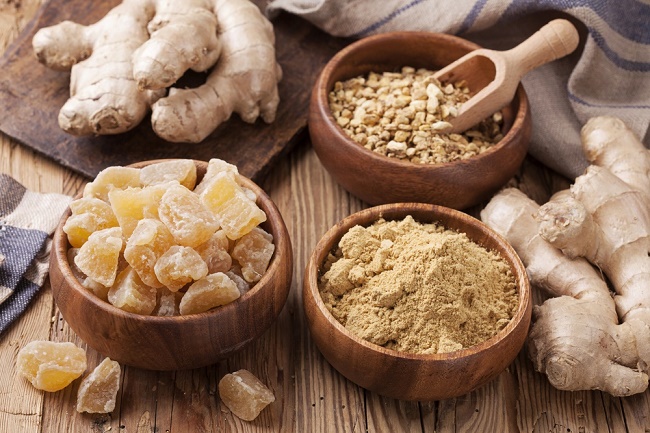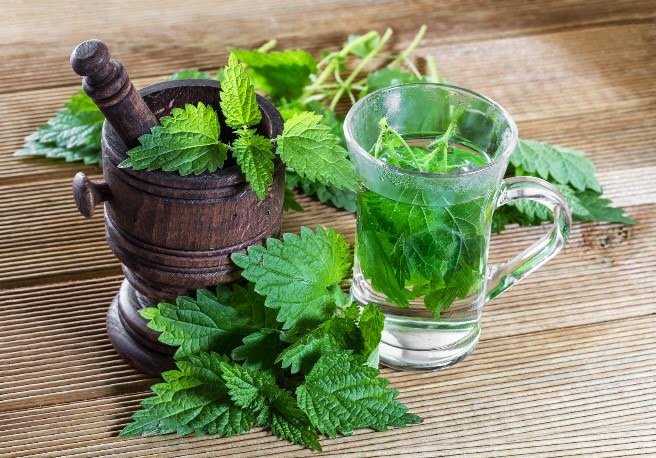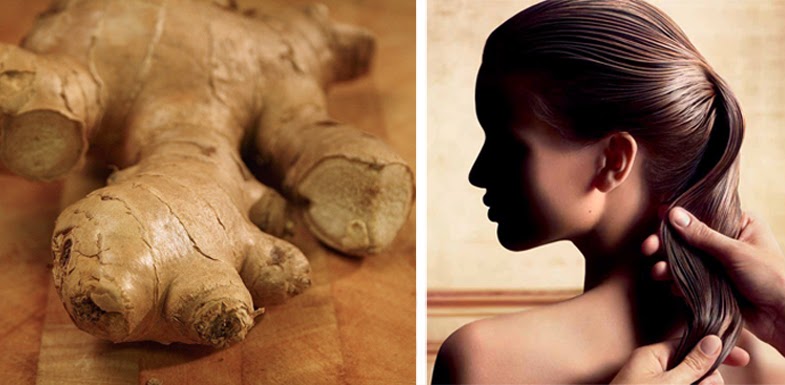What Kinds of People Should Avoid Ginger?

Ginger root is one of nature’s healing plants and has been used for its potential flavor and health for thousands of years. However, ginger is a plant whose powers must be handled with caution, since there are certain types of people who should avoid ginger because of the risks that exist when taking them. Are you one of the people who should avoid or restrict ginger consumption? Read on to find out.

Table of Contents
Ginger has powerful healing properties
We have already written about how ginger can be used as a medicine for good health.
The health-promoting qualities of ginger have been sold for generations by a wide-ranging group of people, from ancient peoples of Asia to modern health gurus. From calming an upset stomach and aiding digestion to easing pain and killing cancer cells, ginger’s beneficial properties run the gamut.
Many people can experience improvements in health by using ginger, powdered in food or as a dietary supplement, but ginger is not the best choice for everyone. We are going to discuss some situations in which ginger should be avoided and / or used in moderation.
What Kinds of People Should Avoid Ginger?
Risks of consuming ginger. When to avoid ginger (or reduce its consumption)
Ginger can interact poorly with certain types of medications prescribed for health conditions. People with diabetes, people with hypertension, and people with bleeding disorders may need to use caution when considering using ginger as a treatment for other conditions.
People taking clotting medications
Ginger can thin the blood, which means that it may be inappropriate for people taking blood clotting medications or who have bleeding disorders. Discuss your desire for ginger with your doctor before using it, especially if you are taking blood-thinning or blood-clotting medications to determine if ginger is the right choice for you.
People taking diabetes medications should avoid ginger
Ginger has a natural tendency to lower blood sugar and as such is one of the 8 best spices and herbs for type 2 diabetes. For people with diabetes and pre-diabetics who control their condition solely through diet, this may be good news.
However, people who take medications for their diabetes (such as metformin or similar medications, or use insulin injections to control blood sugar), should be aware of the effects of ginger on blood sugar, and discuss use ginger with your prescribing doctors before continuing use, this is to prevent your blood sugar from dropping too low.
Women with excessive bleeding during menstruation
It is recommended not to consume ginger for women who have a lot of bleeding during menstruation. Some women report experiencing more bleeding when taking ginger. Ginger has the characteristic of being a vasodilator, and thus, when taken in large amounts, it can increase the amount of blood that falls during menstruation.
People using medications for hypertension
Some medications used to control hypertension, such as calcium channel blockers (i.e., Norvasc, Cardizem, etc.) can interact with ginger, causing blood pressure and / or heart rate to drop to unhealthy levels. leading to irregular heartbeats or other complications. It’s best to avoid ginger, but it’s best to discuss this with your doctor.
Discuss the use of ginger and the possibility of a dosage adjustment with your doctor if you are taking medication to treat high blood pressure.
Risks of taking ginger with gallstones
People with gallstones may find their condition aggravated by the use of ginger.
The gallbladder is a small sac-like structure below your liver and connected to it by the bile duct. The gallbladder serves as a storage facility for bile, which breaks down fat in the intestines.
The gallbladder stores bile until the presence of fat in the digestive system requires it. Gallstones often form in the gallbladder, where they usually cause few problems. However, if they migrate into the bile duct and get stuck there, they can block the flow of bile, causing bile to build up in the liver.
When ginger is taken in large amounts, bile production can increase, and the highest level of gallbladder contractions can agitate gallstones and cause them to lodge in the bile ducts. A stone caught in the bile duct can cause serious illness that may require emergency surgery.
It should be noted that not all doctors agree that ginger is harmful if you have gallbladder disease, and some practitioners of Chinese medicine recommend ginger root as a treatment for gallstones due to its stimulating properties. bile. Follow your doctor’s recommendations for taking ginger if you have gallbladder disease. If you have gallstones you can consider using lemon water to dissolve them.
People who need to gain weight
If you are on a mission to gain weight, it is not recommended that you include ginger in your diet in any presentation. It is widely known that ginger is an excellent ally in weight loss diets as it speeds up metabolism, helps suppress appetite and burn fat. It is used a lot in reducing diets with great efficiency. If you are, on the contrary, looking for more kilos to stabilize your weight, do not take ginger, since the process of gaining weight will be slower.
Pregnant women and ginger consumption
According to the US National Library of Medicine, using ginger during pregnancy is controversial.
There is some concern that ginger could affect the sex hormones of the fetus. There is also a report of miscarriage during the 12th week of pregnancy in a woman using ginger for morning sickness. However, studies in pregnant women indicate that ginger can be used safely for morning sickness without harm to the baby.
The risk of birth defects in newborns of women taking ginger does not appear to be higher than the usual rate of 1% to 3%. Also, there does not appear to be an increased risk of preterm or low birth weight delivery.
There is some concern that ginger could increase the risk of bleeding, which is why some experts advise against using it near your due date. As with any medication given during pregnancy, it is important to weigh the benefit against the risk. Before using ginger during pregnancy, discuss it with your doctor.
People with hemophilia
Hemophilia is a disorder that causes the blood to fail to clot normally. Therefore, anyone who suffers from it should not take ginger as this food stimulates blood circulation. It is a property that has been proven for many years and patients with hemophilia are prohibited from being treated because ginger can make the disease worse.
The same applies if you have a large wound on your body or you are going through a certain healing process, this root could slow down the process. It could even be the cause of an injury suffering heavy and prolonged bleeding.
How much ginger to consume
Most people tolerate ginger very well, and they find it very helpful in fighting anything from mild stomach or digestive disorders, including nausea and vomiting, to arthritis pain and menstrual cramps.
According to the Maryland Medical Center, for people who do not have medical or health conditions on the warning list discussed above, taking a maximum of 4 grams of powdered ginger root per day is safe, while pregnant women are not. they should take more than 1 g per day. Ginger has been used in clinical trials at doses of 250 mg to 1 g, 3 to 4 times a day.
The great thing about ginger is that it can be used both in fresh or powdered form. The powdered form is much more concentrated, and generally when turning fresh ginger into powder, a single tablespoon of fresh ginger root is equal to 1/4 teaspoon of dried ginger.


